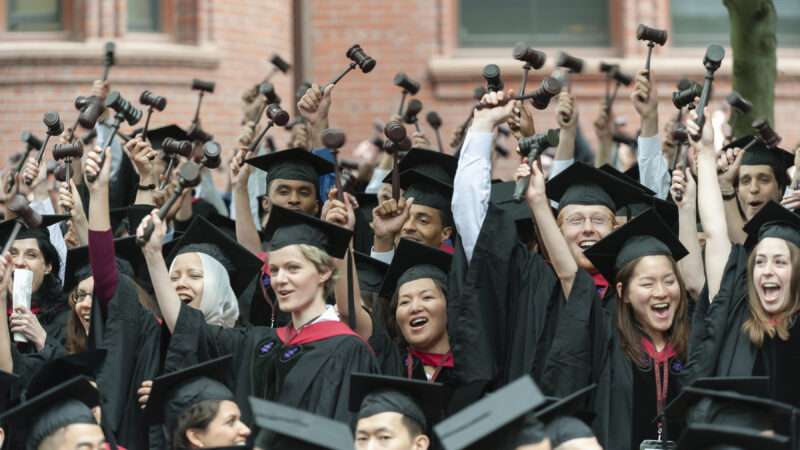Texas Attorney General Ken Paxton is asking the Supreme Court to intervene in the 2020 Presidential election. Yet rather than seek SCOTUS involvement in pre-existing election cases, such as those filed by Pennsylvania legislators, the Trump campaign, or others, AG Paxton is initiating a suit of his own attempting to invoke the Supreme Court’s original jurisdiction. This suit is, without question, among the most audacious legal filings of the 2020 Presidential election, and it is quite unlikely the Supreme Court will respond favorably to Texas’s plea.
In this case, Texas AG Paxton has filed suit against four states–Georgia, Michigan, Pennsylvania and Wisconsin–alleging that various changes to election rules and procedures in those states, combined with alleged fraud–”tainted” the election results in those states. Because this case is styled as a suit filed by one state directly against other states, the suit invokes the Supreme Court’s original jurisdiction (as opposed to the Court’s appellate jurisdiction). Accordingly, AG Paxton filed a motion for leave to file a Bill of Complaint, which is the way that a state asks the Supreme Court to hear a case brought directly against another state under its original jurisdiction, bypassing the need to first bring the case in a lower court.
The full filing, which also includes a Bill of Complaint, a Brief in support of the Motion to Leave, a Motion for Expedited Consideration, and a Motion for a Preliminary Injunction and Temporary Restraining Order, raises the full panoply of constitutional and other claims that we have seen in 2020 Presidential election litigation thus far, and seeks to turn alleged election irregularities and statistical anomalies into constitutional violations. Only three attorneys are listed on the filings: AG Paxton, recently appointed First Assistant AG Brent Webster, and D.C. attorney Lawrence J. Joseph, who is listed as “Special Counsel” to the AG. [As noted here, there has been a great deal of turmoil in the Texas AG’s office, leading to substantial turnover within the office.] Texas Solicitor General Kyle Hawkins is conspicuously absent. (Perhaps Senator Ted Cruz will volunteer to argue in the unlikely event the Supreme Court takes the case, as he has in other election litigation.)
Texas alleges that the four defendant states violated their own laws in making changes to their election procedures and violated the constitution by authorizing or allowing differential treatment of different sets of voters within their states. Because these claims would not be enough, by themselves, to overturn the Electoral College results, the complaint seeks to shoehorn election fraud claims into the argument by alleging “voting irregularities . . . that would be consistent with the unconstitutional relaxation of ballot-integrity protections in those States’ election laws,” and repeats a number of unfounded or unsubstantiated charges relating to missing USB drives and statistical disparities in election results. Failing to prevent such irregularities, Texas claims, contributed to the constitutional violations alleged. Specifically, Texas claims that by “taking—or allowing—non-legislative actions to change the election rules that would govern the appointment of presidential electors,” the defendant states have violated the Electors Clause, the Equal Protection Clause, and the Due Process Clause. The filings further ask the Supreme Court to prevent the defendant states from appointing electors based upon certified election returns and require the defendant state legislatures to appoint electors directly.
Article III of the Constitution provides the Supreme Court with jurisdiction to hear cases in which one state sues another in its original jurisdiction, but it does not always do so. Under current practice, states ask the Court for permission to file such suits—hence the Motion for Leave—and the Court does not always oblige. So, for instance, when Nebraska and Oklahoma sought to sue Colorado over the latter’s decision to legalize marijuana, the Supreme Court refused to hear the case.
Here, Texas is not only asking the Supreme Court to hear the case, it is also asking for expedited consideration and extraordinary emergency relief, in the form of injunctions barring the defendant states from relying upon the election results to appoint electors and authorizing “pursuant to the Court’s remedial authority, the Defendant States to conduct a special election to appoint presidential electors.” In effect, the suit is asking the U.S. Supreme Court to supervise the Presidential election in the four defendant states.
Setting aside the merits of the case for a moment, the Texas filing raises a range or jurisdictional questions. Among other things Texas has to overcome a range of obstacles, including standing and the political question doctrine, to press this suit. Texas claims it will be harmed if the allegedly unconstitutional actions within the defendant states determine the presidential election. Yet the Constitution provides that Congress is the ultimate judge of the Electoral College results. This is yet another reason why it is hard to see the Supreme Court accepting Texas’s plea. Further, the standards for the sort of emergency relief Texas seeks are quite high–among other things, the party seeking such relief is supposed to show a likelihood of success on the merits–so it seems likely the Court will deny the various motions, hopefully without too much delay.
from Latest – Reason.com https://ift.tt/37L4DqD
via IFTTT


